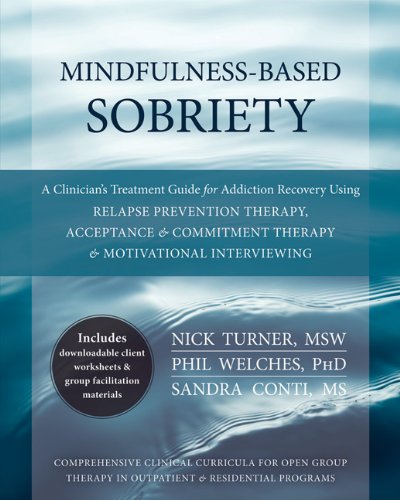Mindfulness-Based Sobriety
Mindfulness-Based Sobriety (MBS) is a clinical method for treating addictive behaviors that integrates three evidence-based practices: Motivational Interviewing (MI), Acceptance and Commitment Therapy (ACT), and Relapse Prevention Therapy (RPT).
MBS allows you to define what sobriety means to you. This in turn gives you the space to explore your values and goals and how those fit (or don’t fit) with substance use and/or addictive behaviors such as gambling or sex. In addition to exploring what’s important to you in life, engaging in MBS will also help you learn the skills to live a meaningful life, on your own terms.
As mentioned above, the MBS model integrates three clinical methods that have shown evidence of being effective with a range of mental health and behavioral issues. The first method, Motivational Interviewing helps individuals explore their ambivalence about behavioral change. Most people are on the fence when it comes to making life changes. They both want to change and don’t want to change at the same time. Through openly exploring that ambivalence within an environment of acceptance and compassion, people are encouraged to make an informed decision about the changes they want to make (as opposed to a reactionary decision based on outside pressure or staying stuck in the ambivalence).
Acceptance and Commitment Therapy (ACT) is another component of MBS. This evidence-based treatment draws heavily on Cognitive Behavioral Therapy and Mindfulness traditions. Effective with a wide range of problems, ACT helps people move towards a life worth living (based on values and goals) using the resources of mindfulness, cognitive science, and neurobiology.
Lastly, MBS utilizes components of Relapse Prevention Therapy (RPT). RPT is a clinical method that focuses on enhancing a person’s ability to initiate and sustain behavioral changes such as reducing or abstaining from substance use or engaging in a behavior like gambling. This is done through skill training and practice both inside and outside of sessions.
There is a lot of shame, guilt, and remorse when it comes to substance and process addictions. Treatment programs need to be welcoming and person-centered in order to help people come to terms with the impact that their behavior(s) has had on their lives. Our aim in developing Mindfulness-Based Sobriety was to improve the quality of care for those receiving addiction treatment and assist people in improving their quality of life through engaging with the world rather than just eliminating certain behaviors.
Contact Us
Learn more about coming to Your First Visit with us. Any of our clinicians would be glad to answer your questions about therapy and counseling. Please visit the page About Us to learn more about our therapists.

